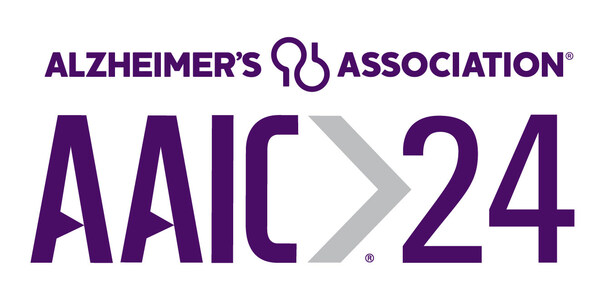 |
Four-decade study of more than 130,000 people measured the risk of your morning bacon or ballgame hot dog
Key Takeaways
PHILADELPHIA, July 31, 2024 /PRNewswire/ -- People who eat at least 1/4 serving of bacon, bologna or other processed red meat a day (about two servings a week) have a higher risk of dementia than those who eat less than 1/10 of a serving a day (about three servings a month), according to a study reported today at the Alzheimer's Association International Conference® (AAIC®) 2024, in Philadelphia and online.
The findings also suggest that people can decrease their risk of dementia by replacing one serving of processed red meat with one serving of nuts and legumes, such as beans and peas, every day.
"Prevention of Alzheimer's disease and all other dementia is a major focus, and the Alzheimer's Association has long encouraged eating a healthier diet — including foods that are less processed — because they've been associated with lower the risk of cognitive decline," said Heather M. Snyder, Ph.D., Alzheimer's Association vice president of medical and scientific relations. "This large, long-term study provides a specific example of one way to eat healthier."
Eating an overall heart-healthy diet may contribute to decreasing one's risk for cognitive decline and dementia. However, there isn't a single food or ingredient that, through rigorous scientific research, has been shown to prevent, treat or cure Alzheimer's or other dementia. In fact, it is unlikely that one food or ingredient will have a significant beneficial effect against a disease as complex as Alzheimer's.
The researchers observed more than 130,000 participants in the Nurses' Health Study and Health Professionals Follow-Up Study and tracked them for up to 43 years to assess the association between red meat and dementia. They identified 11,173 dementia cases. The researchers assessed the participants' diet every two to four years based on their answers to food-frequency questionnaires, which asked them how often they ate a serving of processed red meat, which includes bacon (two slices), hot dog (one), sausage or kielbasa (2 ounces or two small links), salami, bologna or other processed meat sandwiches; and nuts and legumes, including peanut butter (1 tablespoon), peanuts, walnuts or other nuts (1 ounce), soy milk (8-ounce glass), string beans, beans or lentils, peas or lima beans (1/2 cup), or tofu or soy protein.
Reported for the first time at AAIC 2024, the findings showed that people in the study who ate 1/4 servings or more of processed red meat daily had a 14% higher risk of dementia than those who ate less than 1/10 of a serving daily.
The researchers also assessed cognition using the Telephone Interview for Cognitive Status for 17,458 study participants and determined that each additional daily serving of processed red meat was linked to:
However, replacing one daily serving of processed red meat with one daily serving of nuts and legumes was linked to a 20% lower risk of developing dementia and 1.37 fewer years of cognitive aging in global cognition.
"Study results have been mixed on whether there is a relationship between cognitive decline and meat consumption in general, so we took a closer look at how eating different amounts of both processed and unprocessed meat affects cognitive risk and function," said Yuhan Li, M.H.S., research assistant in the Channing Division of Network Medicine at Brigham and Women's Hospital and lead author of the study, which she conducted while a graduate student at the Harvard T.H. Chan School of Public Health, Boston. "By studying people over a long period of time, we found that eating processed red meat could be a significant risk factor for dementia. Dietary guidelines could include recommendations limiting it to promote brain health."
"Processed red meat has also been shown to raise the risk of cancer, heart disease and diabetes. It may affect the brain because it has high levels of harmful substances such as nitrites (preservatives) and sodium," Li said.
The researchers also studied unprocessed red meat and did not uncover a significant association between dementia and eating unprocessed red meat, such as hamburger, steak or pork chops.
The Alzheimer's Association U.S. Study to Protect Brain Health Through Lifestyle Intervention to Reduce Risk (U.S. POINTER) is a two-year clinical trial to evaluate whether lifestyle interventions that target many risk factors can protect cognitive function in older adults who are at increased risk for cognitive decline. More than 2,000 volunteers are enrolled across five study sites. Results are expected to be reported in 2025.
About the Alzheimer's Association International Conference® (AAIC®)
The Alzheimer's Association International Conference (AAIC) is the world's largest gathering of researchers from around the world focused on Alzheimer's and other dementias. As a part of the Alzheimer's Association's research program, AAIC serves as a catalyst for generating new knowledge about dementia and fostering a vital, collegial research community.
AAIC 2024 home page: www.alz.org/aaic/
AAIC 2024 newsroom: www.alz.org/aaic/pressroom.asp
AAIC 2024 hashtag: #AAIC24
About the Alzheimer's Association®
The Alzheimer's Association is a worldwide voluntary health organization dedicated to Alzheimer's care, support and research. Our mission is to lead the way to end Alzheimer's and all other dementia — by accelerating global research, driving risk reduction and early detection, and maximizing quality care and support. Our vision is a world without Alzheimer's and all other dementia®. Visit alz.org or call 800.272.3900.
*** AAIC 2024 news releases may contain updated data that does not match what is reported in the following abstract.